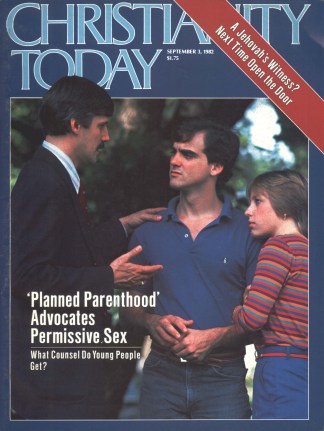Screenplay by Hampton Fancher and David Peoples; directed by Ridley Scott.
In a movie season full of space battles and cute aliens, there’s a surprisingly serious science-fiction release from Ladd Company productions called Blade Runner.
The main character is Rick Deckard (Harrison Ford), whose job is to kill replicants, artificial people made of flesh and blood who work as slaves on distant planets. They’re strong, intelligent—and so deadly that any found on earth are shot on sight. Deckard is sent after five top-of-the-line models, but as he roams the damp, filthy streets of Los Angeles, circa 2019, he begins to find more than he bargained for.
These replicants, though made only three years earlier, have been given the memories of a lifetime by their designer. But they are also designed to die after four years—automatically. And so these replicants, driven by memories of life and the fear of death, are trying desperately to contact their maker in Los Angeles and beg for life.
On this level, the film is a chilling allegory about man’s relationship to God. But more disturbing is the fact that Deckard himself, unlike his targets, has no Maker to confront. He comes to love one of his targets, the first strong emotion he has felt in years, except for fear. And as he loves her, and kills the others, he begins to understand how little difference there is between himself and the replicants. They are all afraid, lonely, doomed. But a blade runner has no designer, no higher power to appeal to.
This film is heir to the pessimism of new-wave science fiction of the 1960s. But unlike the best such fiction, Blade Runner bails out at the end with a classic Hollywood cop-out, and its plot is occasionally blurred and difficult to follow. The special effects and set design, however, have created the most stunning image of a future city since Fritz Lang’s Metropolis.
This isn’t a family film, and it’s not for the squeamish. But of all the summer’s releases, only Blade Runner is truly adult in its thoughtfulness and complexity. If you enjoy science fiction, by all means see this.
Reviewed by Hiawatha Bray, a free-lance writer living in Chicago.










